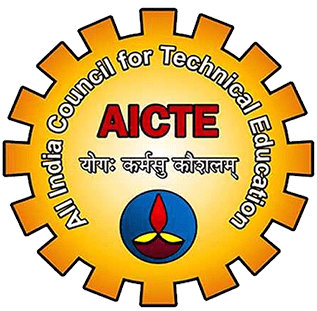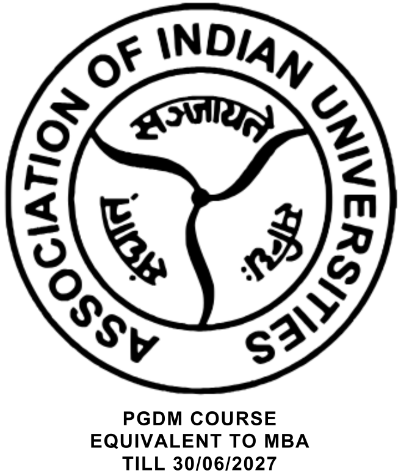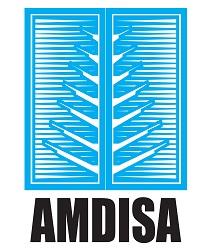POST GRADUATE DIPLOMA IN MANAGEMENT (PGDM)
Objectives
Management Development Institute Murshidabad, Post Graduate Diploma in Management (PGDM) is a 2-year fulltime residential programme designed to nurture students and help them build and enhance their managerial competence. The meticulously structured programme will enable students to:
- Understand the social, economic, political, technological and ecological environment to make them environmentally and socially responsible ethical managers through hands-on-learning experiences.
- Become effective leaders, who can achieve results beyond expectations and transform organizations.
- Emphasis on lateral thinking so that they evolve with innovative ideas, alternative solutions, and set benchmark for others through enabled entrepreneurial skills.
- Imbibe values of discipline, integrity, justice and fairness so that they promote and maintain high ethical standards in management.
- Develop a global mind-set so that future managers can meet the challenges of international competition .
Curriculum Design
The PGDM curriculum has been designed to enrich student’s skills and abilities in order to enable them in applying management theories and concepts in live problems existing in business and industry. The programme enables students to identify and diagnose complex problems in management through hands on learning experiences. It includes gamut of pedagogy: lectures, case studies, seminars, assignments, live projects, group discussions, business games, outbound based experiential learning activities, educational excursions, role plays, simulation exercises, structured and unstructured group work, and field visits. Consistent with state-of-art technology, the programme integrates the use of computers (IT) in the learning process. The students undertake several field based projects (live projects) so that they can get better insights into real life situation. These all will inevitably assist students to achieve high standards of excellence.
Programme Structure
Core Courses
The PGDM course curriculum is spread across six terms with the bulk covered in the first three terms. These core courses will enhance the ability to communicate, analyse situations and make decisions by adopting quantitative and qualitative techniques. It even helps them to develop a holistic view of the different functional areas and the business environment. During this period, it is mandatory to opt for courses in general management and major functional areas, such as Accounting and Finance, Marketing, Operations Management, Information Management and Business Analytics, Organizational Behaviour and Human Resource Management and Strategic Management and International Business. They get exposure to the basic disciplines of Economics, Behavioural Sciences, Managerial Communication, Business Law, Quantitative Methods and Decision Sciences.
Summer Internship
At the end of the first three terms, students are required to undertake an industry internship or summer training to work on a project / life problem an organization. The internship usually spans over a period of eight weeks. This is a compulsory component of the curriculum for the completion of the academic requirements. It is designed to provide exposure to organizational work setting, develop an understanding of business realities, learn how to apply theory in real life business situations and find its relevance.
Dissertation
The dissertation will be allocated 1.5 credits in Term-IV under the Internship/Fieldwork category. Students will be required to submit their completed dissertation reports by the conclusion of Term-V.
This research-intensive project allows students to engage deeply with their chosen topic, bridging academic learning with practical, real-world application. It fosters essential skills such as critical thinking, problem-solving, and academic writing, and preparing students for future professional endeavours.
Specializations
In the second year, the student opts for elective/ optional courses to specialize in a maximum of two functional areas.
These areas of specialization may deal with any of the following:
- Accounting and Finance
- Organizational Behaviour and Human Resource Management
- Marketing
- Operations Management
- Information Management and Business Analytics
- Strategic Management and International Business
All elective Courses, however, may not be offered, as this would be determined by the number of students showing interest in aforementioned area of specializations. Details about the electives are made available to students when they join MDIM. To specialize in an area, a student must opt for a minimum of five elective courses offered in that area that assigns a weightage of 15 credits and three each for a course. Students will be allowed to opt in a range of 14 to 17 electives. However, CGPA would be decided based on the best 14 electives out of total electives where students have scored relatively better.
The Institute has envisaged new electives in line with latest demands of the students and corporate like Econometrics and many more expected to appear in the forthcoming academic session that will meet corporate requirements.
Evaluation
The evaluation system for the PGDM has been designed to achieve the following:
- Evaluate the progress of learning of each student
- Prescribe and promote certain acceptable and uniform standards of comprehension
- Encourage healthy and constructive competition among the students MDIM follows a system of continuous evaluation. Throughout the term, students have to appear in various tests on their ability to understand concepts, learn techniques and apply them to problems in the real life situation relevant to corporate. At each stage of the course through continuous feedback, the students would be in a position to gauge their performance and take remedial measures in order to make improvements. In each course, a student will be thus awarded a grade sheet only. The weighted average of all courses taken by a student in the programme will give the Cumulative Grade Point Average (CGPA).
Recognition
On successful completion of the programme requirements, a student will be awarded a Post Graduate Diploma in Management, PGDM, which has the approval of the All India Council for Technical Education (AICTE), Government of India, accredited by the National Board of Accreditation (NBA) for the academic years 2024-25 to 2026-27 i.e. up to 30th June 2027.
The Association of Indian Universities (AIU), New Delhi has granted our flagship Post Graduate Diploma in Management (PGDM) Programme equivalent to the Two-Year Full-Time MBA degree of an Indian University.
Course Curriculum
First Year
| Term | Course Code | Course Name | Core / Elective | Credit |
| Term-I | C101 | ORGANIZATIONAL BEHAVIOR | Core | 3 |
| C102 | LEGAL ASPECTS OF BUSINESS | Core | 3 | |
| C103 | MANAGEMENT ACCOUNTING-I | Core | 3 | |
| C104 | MARKETING PLANNING | Core | 3 | |
| C105 | MANAGERIAL COMMUNICATION-I | Core | 3 | |
| C106 | MICROECONOMICS | Core | 3 | |
| C107 | STATISTICS FOR MANAGEMENT | Core | 3 | |
| Term-II | C201 | BUSINESS ANALYTICS-I | Core | 3 |
| C202 | HUMAN RESOURCE MANAGEMENT | Core | 3 | |
| C210 | INDIAN THOUGHT & MANAGEMENT | Core | 1.5 | |
| C203 | CORPORATE FINANCE-I | Core | 3 | |
| C204 | ECONOMIC ENVIRONMENT AND POLICY -I | Core | 3 | |
| C205 | MANAGEMENT ACCOUNTING-II | Core | 3 | |
| C206 | MANAGEMENT SCIENCE MODELS | Core | 3 | |
| C208 | MARKETING PRACTICES AND IMPLEMENTATION | Core | 3 | |
| C209 | OPERATIONS MANAGEMENT | Core | 3 | |
| Term-III | C301 | BUSINESS ETHICS AND CORPORATE SOCIAL RESPONSIBILITY | Core | 1.5 |
| C309 | LEADERSHIP AND EMOTIONAL INTELLIGENCE | Core | 1.5 | |
| C302 | ECONOMIC ENVIRONMENT AND POLICY-II | Core | 3 | |
| C303 | MANAGEMENT INFORMATION SYSTEMS | Core | 3 | |
| C305 | CORPORATE FINANCE-II | Core | 3 | |
| C306 | STRATEGIC MANAGEMENT-I | Core | 3 | |
| C307 | ENTREPRENEURSHIP AND NEW VENTURE CREATION | Core | 1.5 | |
| C308 | RESEARCH METHODS IN BUSINESS | Core | 3 | |
| C310 | RURAL IMMERSION | Core | 1.5 |
Second Year
Term IV: Core Course: Summer Internship (3 Credits), Dissertation (1.5 Credits), Strategic Management-II (3 Credits), Electives (Multiple courses offered. Students choose to study 4 to 5 courses)
Term V: Electives (Multiple courses offered. Students choose to study 5 to 6 courses)
Term VI: Electives (Multiple courses offered. Students can choose the electives to complete a minimum 42 credits of electives)
List of Electives (Offered in Term IV, V and VI)
| Course Code | Organizational Behaviour and Human Resource Management | Credit |
| E401 | INDUSTRIAL RELATIONS & LABOR LAWS-I | 3 |
| E403 | PERFORMANCE MANAGEMENT SYSTEM | 3 |
| E404 | HR ANALYTICS | 3 |
| E501 | INDUSTRIAL RELATIONS & LABOR LAWS – II | 3 |
| E502 | LEARNING AND DEVELOPMENT | 3 |
| E519 | LEADERSHIP ORGANIZATION TRANSFORMATION | 3 |
| E503 | STRATEGIC AND SUSTAINABLE HRM | 3 |
| E601 | APPLIED PSYCHOLOGY IN MANAGEMENT | 3 |
| E602 | POWER OF NEGOTIATION | 3 |
| E619 | TALENT, MINDSET AND COMPETENCY MANAGEMENT | 3 |
| Course Code | Accounting and Finance | Credit |
| E405 | CORPORATE RESTRUCTURING AND BUSINESS VALUATION | 3 |
| E406 | DERIVATIVES AND RISK MANAGEMENT | 3 |
| E407 | INVESTMENT ANALYSIS AND PORTFOLIO MANAGEMENT | 3 |
| E408 | TRADING STRATEGIES | 3 |
| E504 | FIXED INCOME SECURITIES | 3 |
| E505 | FINANCIAL MODELING | 3 |
| E506 | PROJECT APPRAISAL & FINANCE | 3 |
| E507 | INTERNATIONAL CORPORATE FINANCE | 3 |
| E604 | RISK MANAGEMENT FOR BANKS AND FINANCIAL INSTITUTIONS | 3 |
| E605 | STRUCTURED FINANCE | 3 |
| E606 | SUPPLY CHAIN FINANCE | 3 |
| Course Code | Marketing | Credit |
| E409 | MARKETING OF SERVICES | 3 |
| E410 | SALES AND DISTRIBUTION MANAGEMENT | 3 |
| E411 | CONSUMER BEHAVIOUR | 3 |
| E412 | MARKETING ANALYTICS | 3 |
| E508 | BRAND MANAGEMENT | 3 |
| E509 | PRODUCT MANAGEMENT | 3 |
| E510 | RETAILING AND FRANCHISING | 3 |
| E516 | INTERNATIONAL MARKETING | 3 |
| E607 | ADVERTISING MANAGEMENT | 3 |
| E608 | BUSINESS TO BUSINESS MARKETING | 3 |
| E609 | CUSTOMER RELATIONSHIP MANAGEMENT | 3 |
| Course Code | Operations Management | Credit |
| E414 | PROJECT MANAGEMENT | 3 |
| E415 | SUPPLY CHAIN MANAGEMENT | 3 |
| E413 | BUSINESS TECHNOLOGY CONSULTING STRATEGIES | 3 |
| E512 | SERVICE OPERATIONS MANAGEMENT | 3 |
| E513 | STRATEGIC SOURCING AND SUPPLIER MANAGEMENT | 3 |
| E514 | MANAGEMENT OF QUALITY | 3 |
| E610 | ARTIFICIAL INTELLIGENCE & MACHINE LEARNING (AIML) | 3 |
| E611 | OPERATIONS STRATEGY | 3 |
| E606 | SUPPLY CHAIN FINANCE | 3 |
| E614 | SUSTAINABLE OPERATIONS AND SUPPLY CHAIN | 3 |
| Course Code | Strategic Management and International Business | Credit |
| E418 | INNOVATION STRATEGY | 3 |
| E419 | MERGER & ACQUISITIONS | 3 |
| E520 | INTERNATIONAL BUSINESS | 3 |
| E521 | STRATEGY AND SUSTAINABILITY | 3 |
| E613 | ENTREPRENEURIAL FINANCE, SALES AND MARKETING | 3 |
| E620 | BUSINESS SIMULATION | 3 |
| E621 | GLOBAL BUSINESS STRATEGY | 3 |
| Course Code | Information Management and Business Analytics | Credit |
| C402 | BUSINESS ANALYTICS-II | 3 |
| E417 | DATABASE MANAGEMENT | 3 |
| E515 | E COMMERCE AND E BUSINESS | 3 |
| E518 | BUSINESS TRANSFORMATION METHODOLOGIES | 3 |
| E617 | CYBER SECURITY AND DIGITAL FORENSIC | 3 |
| E618 | BLOCKCHAIN TECHNOLOGY | 3 |
| Course Code | Economics | Credit |
| C416 | DEMAND FORECASTING WITH ECONOMETRICS TOOLS | 3 |
| E616 | INDUSTRIAL ORGANIZATION AND PRICING STRATEGY | 3 |
| E615 | INTERNATIONAL ECONOMICS | 3 |
Note: The above list of electives is tentative and not binding on the Institute. Actual offerings will depend on the size of the group, which shows interest in a course. The Institute also will consider new electives in line with recent developments and availability of expertise to offer the same.















